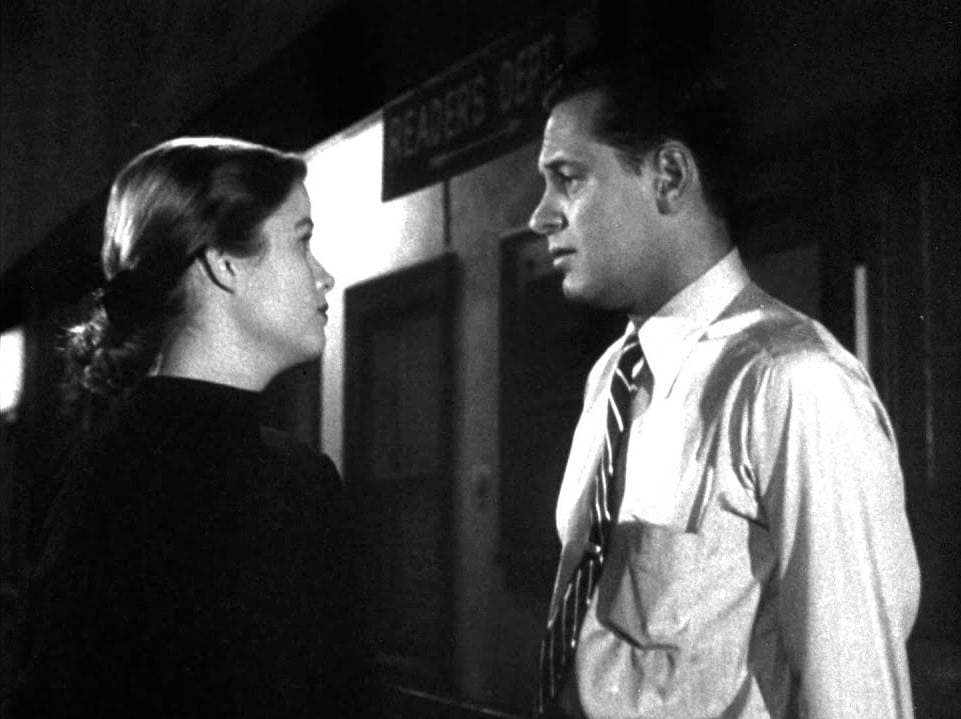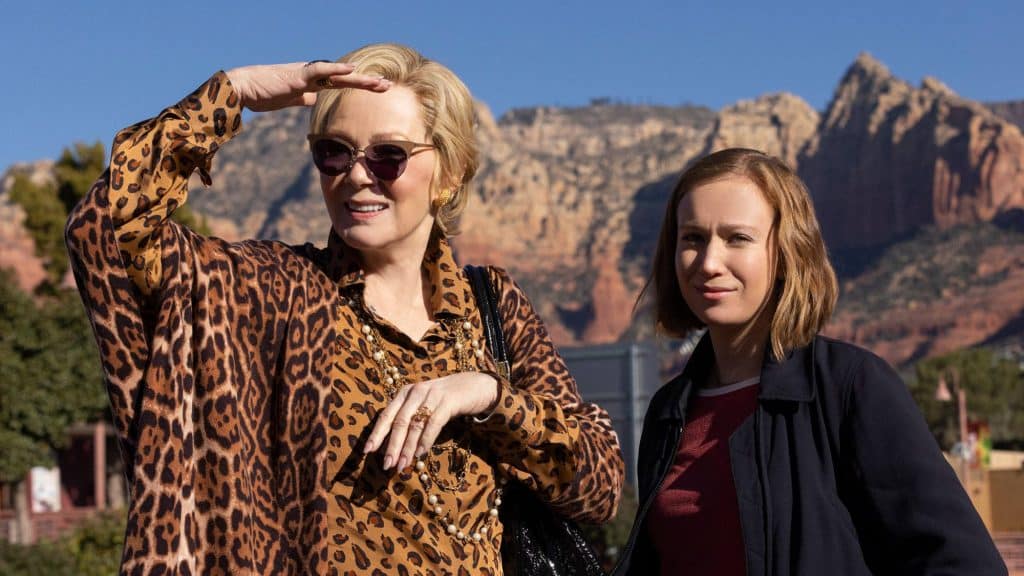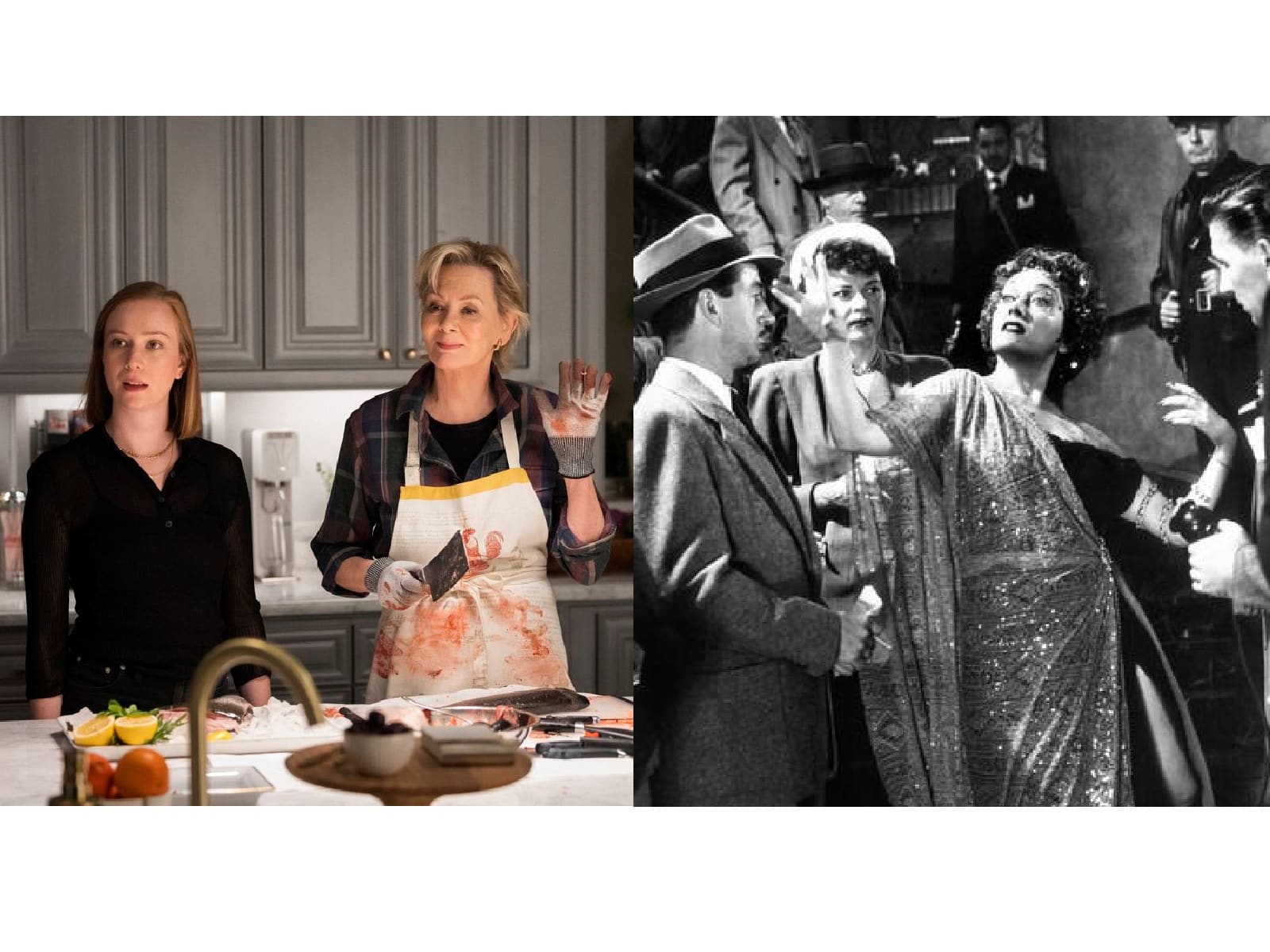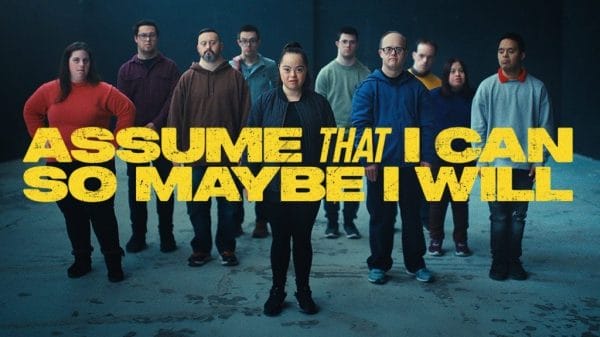Earlier this year, the second season of the excellent HBO Max comedy ‘Hacks’ was released. The premise of the series bears some fascinating similarities to the 1950 Billy Wilder film ‘Sunset Boulevard’. ‘Hacks’ can, in some ways, be seen as a modern retelling of this iconic Old Hollywood story.
‘Sunset Boulevard’ is about the contentious relationship between an aging actress and the younger screenwriter who helps her re-write a screenplay she’s written, while ‘Hacks’ is about the contentious relationship between an older comedian and the young comedy writer who helps her write new material. See the similarities yet?
At the time of its release, ‘Sunset Boulevard’ was considered a biting exposé on Hollywood. The beginning of the film follows the protagonist, Joe Gillis, as he pitches cheap, cliché screenplay ideas that are immediately rejected. He’s disillusioned with the corporate world of Hollywood from the moment we meet him. Later, we are introduced to the character of Betty, a young script reader who dreams of officially becoming a screenwriter. She and Joe work on a screenplay together, and even he admits that she’s the one with the real talent. However, even though both her parents were in the film industry, the film makes it clear that as a woman, she’s unlikely to succeed in her desired field.

The film uses the character of Norma Desmond for its strongest critique of Hollywood. Norma was an extremely famous film star during the silent film era, but once the industry embraced sound technology, she was abandoned. Now, she lives alone in her Los Angeles mansion (except for her butler, who is also her ex-husband and an ex-director), watching her old silent films on repeat. She plans for her own screenplay to become her grand return to the screen – an opportunity she has to create for herself, because no one else will give it to her. By the end of the film, it’s obvious that this has been a cautionary tale on the dangers of Hollywood. Joe is barely able to survive in the city and plans to return home to Ohio and take up his old job at a newspaper. Norma, after her years of mistreatment and dismissal by the industry, loses all her grip on reality. She sees the real world around her as a film set, with herself as the star, finally making her comeback.
Like ‘Sunset Boulevard’, ‘Hacks’ too critiques the contemporary entertainment industry from the perspective of the women it affects. It follows Deborah Vance, a famous comedian who is a staple of the Las Vegas scene. At the end of the show’s first season, Deborah loses her years-long residency at a Las Vegas casino, only to be replaced by a young male DJ. Towards the end of the second season, Deborah decides to try to make her latest, more confessional show into a special. In the episode ‘On the Market’, she pitches it to several different production companies, and is rejected by all but one. The only company willing to fund Deborah’s special wants to fundamentally change it so that it will fit within their brand. Crucially, they want to bring on board an “exciting” young male director instead of the older, female director who already understands Deborah’s vision. Ultimately, she funds the special herself, and the riskier confessional show is a major success – a much more cathartic and hopeful ending than we get from ‘Sunset Boulevard’.

While ‘Sunset Boulevard’ looks at how a female silent film star is disregarded by the rapidly-developing film industry, ‘Hacks’ examines the modern experiences of women working in comedy. In the first season, Deborah’s comedy is based on the pre-conceived notions the audience has about her – that she’s a ‘crazy’ woman who burned down her husband’s house for cheating on her. She plays along with these labels and distorts the truth of what happened because she thinks that’s what the audience wants to hear. However, her writing partner Ava encourages her to write a more honest show about how all these events actually played out. The show is originally unsuccessful because it’s not what her audience wants to hear from her. But it improves once Deborah realizes that she needs to take responsibility for her own part in what has happened to her. She finds the balance between being truthful and deriving comedy from the way she acted in the past, without the joke actually being on her.
In the Season 2 episode ‘Retired’, Deborah runs into an old friend of hers named Susan who used to be a comedian too. Deborah believes she sabotaged Susan’s comedy career to preserve her own – because she thought there could never be two female comedians coming up together and both of them be successful. Susan, however, reveals that she made the decision to leave comedy after seeing the sacrifices Deborah had to make to keep her comedy career going, especially in regard to her relationship with her daughter. This idea of sacrifice echoes throughout ‘Hacks’, particularly at the end of Season 2 when Deborah explains in her show how she chose her career over her family. The show makes clear that Deborah’s success as a female comedian has always come at a price.
The ‘Hacks’ creators also use this classic premise to tell the story of a deeply complex relationship between two women. Creator Jen Statsky has said that for herself and the other two creators, Lucia Aniello and Paul W. Downs, the goal was always “to show a relationship between two women that you hadn’t really seen before.” This relationship between Ava and Deborah is often described in the marketing for the show as a ‘dark mentorship’. Their relationship is largely defined by their conflict with one another, but as the show progresses, we see moments of true affection and care between them. The Season 2 scene where Deborah teaches Ava how to swim is a particular highlight. At the end of the day, their relationship is truly a partnership – or, as Statsky describes it, a collaboration between two artists.
In the age of reboots that no one ever really needed or wanted, it’s a delight to see how old stories can echo through new ones in creative and original ways – whether intentional or not.
To read more about the representation of women on screen through the years, click here.














